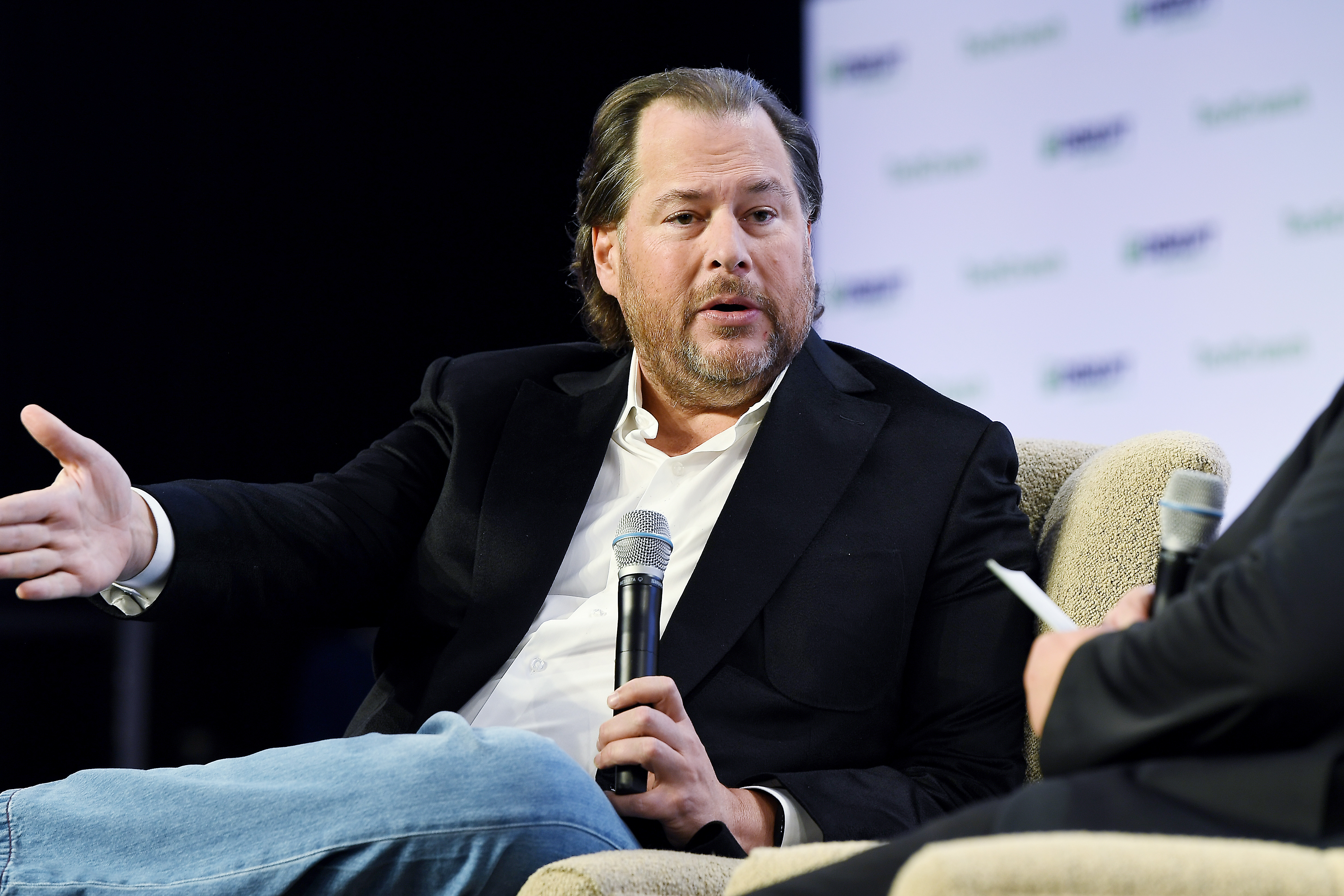‘Capitalism Is Dead,’ Says Billionaire Made Rich By Capitalism

Credit to Author: Edward Ongweso Jr| Date: Wed, 16 Oct 2019 17:26:28 +0000
Salesforce chairman and co-CEO Marc Benioff has a simple message for capitalists around the world: Capitalism is dead.
“As a capitalist, I believe it’s time to say out loud what we all know to be true: Capitalism as we know it, is dead,” the billionaire wrote in a recent column in the New York Times.
The piece plainly lays out the case for why capitalism's "obsession [with] maximizing profits for shareholders" has failed us and led to “horrifying inequality" along with the threat of “catastrophic climate change.”
“It's no wonder that support for capitalism has dropped, especially among young people,” Benioff wrote.
The column, then, argues the solution is a “new capitalism,” where CEOs pinky promise to do more good: donate more to charity, pay more taxes, and cut more emissions. This vision is not compelling. Start with what he identifies as the source of both his and capitalism’s success: “free markets." Benioff claims that free markets have advanced technology, birthed new industries, spawned medical miracles, and raised a tide that has lifted billions of boats out of water. They’ve also given Benioff billions that have allowed him to "embrace philanthropy" and invest in causes like public education or homelessness.
There’s more to this picture than he lets on.
To start with, capitalism’s greatest hits have been reluctant concessions to labor movements or the result of state policy. The New Deal and the Great Society are just two examples of popular and substantive social programs that were, and still are, opposed by free market evangelists, despite their near-universal benefits. For decades, the most innovative sector of American industry was Bell Labs, a government-backed tech monopoly. Now, we suffer Silicon Valley’s excesses, in no small part thanks to Cold War spending that raided public treasuries for private pockets, in the process building the foundations that Mark Zuckerberg and Jeff Bezos stand on today. Where is the free market in all this?
Benioff’s “capitalism as it has been practiced in recent decades” is actually a reversion to the mean. American capitalism has always been brutal, with only a few decades of respite that largely excluded people of color and women. Those few decades of prosperity were undermined as early the 1970s thanks to free market fundamentalism aimed at returning to capitalism’s roots—unleashing the market to promote profit-seeking behavior and capital accumulation.
Benioff has made billions as an active participant of the capitalism he decries. Every single day from 2004—when Salesforce went public—to 2010, Benioff sold at least 10,000 shares of his company (he holds over 30 million), netting him a few hundred thousand dollars daily. He still sells Salesforce stock almost every day.
Like many other companies, Salesforce doles out stock-based compensation—a strategy meant to incentivize management to “align interests” with shareholders. From 2004 to 2018, Salesforce paid out almost $5 billion in stock-based compensation, much larger than cash compensation over that same period. There is no mention of fixing stock-based compensation or stock buybacks in Benioff’s proposals.
Benioff fancies himself a philanthropist, but his company has a software contract with Customs and Border Protection (CBP). He claims that Salesforce software is not involved in family separations, even though its software is used to hire Customs and Border Patrol agents (who work intimately with ICE) and manage border activities. Even if Benioff or his company weren’t profiting from harmful immigration policies, his philanthropy shouldn’t matter. Philanthropy is a key part of how “capitalism as we know it” legitimizes itself: by using ill-gotten gains to turn our attention away from a disease to its symptoms—from capitalism’s inability to meet all our needs to the ways in which benevolent billionaires can meet some of them.
Benioff's defense of capitalism, then, explains why his vision of a "new capitalism" looks the way it does. If free markets, benevolent CEOs, and philanthropy are at the center of your origin story, then the way forward should reflect just that: self-governance, smart regulation, philanthropy, and progressive taxation.
Benioff argues that corporations should sign non-binding pledges declaring the "purpose" of a corporation to be "a fundamental commitment to all our stakeholders," and not just shareholders. Congress should create a "strong, comprehensive national privacy law.” It would be nice if someone did something about “racial inequalities” or students drowning in debt. Entrepreneurs would need to "commit to donating 1 percent of their equity, time, and product" to philanthropy—whatever that means.
For Benioff to consider an eclectic mix of progressive policies and corporate responsibility a “new capitalism” is a little jejune (naive, simplistic, shallow, you get the point). This new capitalism is just the old one with extra steps that might improve the lives of many people—but for how long? Historically, attempts to move away from a profit-centric system have always been resisted, and ultimately, gutted. The core logic of capitalism is profits, which eventually means the exploitation of workers, consumers, the state, and anything else that might earn a profit.
If you want a new system, you need to abandon the old one. There’s no other way around it.
This article originally appeared on VICE US.